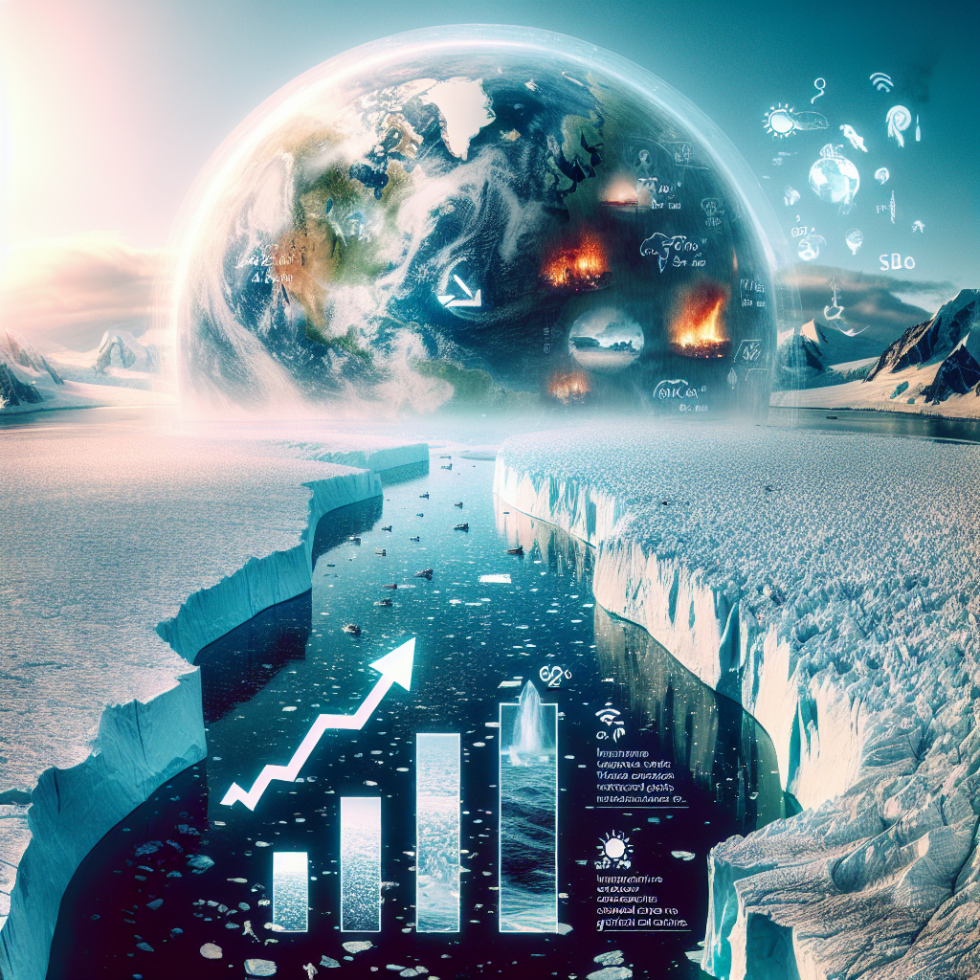
Impending Catastrophe: Understanding the Antarctic Crisis
The scientific community is sounding the alarm: recent studies indicate that **abrupt climate shifts in Antarctica** could lead to severe and long-term consequences across the globe. Experts point to a wide array of evidence suggesting that our planet is on the brink of a catastrophic tipping point. According to a study published in Nature, these changes are often both a **cause and effect of global warming**, leading to a cycle that could ultimately become irreversible.
The Role of CO2 Emissions
One of the most critical findings of the study is the emphasis on limiting **CO2 emissions**. It is essential to prevent global temperatures from rising beyond **1.5 degrees Celsius** above pre-industrial levels. Lead author **Nerilie Abram**, a professor at the Australian National University, warns that many of the shifts occurring in Antarctica are **interconnected**, and once triggered, they could be challenging to halt.
Melting Ice and Its Consequences
The retreat of ice in Antarctica is alarming. As sea ice diminishes, it not only contributes to sea level rise but also alters ocean currents that affect **global climate patterns**. Although melting floating sea ice doesn’t contribute directly to rising sea levels, the transition from a reflective surface to deep water absorbs heat instead of reflecting it back into space. This phenomenon can amplify warming worldwide.
Sea Ice Retreat: The Statistics
Since 2014, **Antarctic sea ice has retreated** by an average of **120 kilometers (approximately 75 miles)** from the continent’s shores. This rate of retreat is nearly threefold compared to the decline in Arctic sea ice over nearly half a century. By July 2025, sea ice extent was recorded at the third lowest level within the last 47 years of satellite observations.
Ice Sheets and Future Sea Levels
The implications of these changes are monumental. **Thwaites Glacier**, part of the Antarctic Ice Sheet, is projected to deteriorate further, contributing to rising sea levels. NASA data suggests that between 2003 and 2019, Antarctica and Greenland lost thousands of **gigatons of ice**, leading to more than half an inch of global sea level rise. The potential for the entire Antarctic ice sheet to melt indicates a staggering **58 meters (nearly 200 feet)** rise in sea levels, prompting fears of extensive **coastal flooding**.
The Point of No Return
The current global average temperature has already risen by about **1.3 degrees Celsius**, bringing us closer to a tipping point where even a slight increase could trigger multiple meters of sea level rise. The study warns that **the West Antarctic Ice Sheet’s collapse** represents one of the most alarming potential tipping points, likely to be triggered well before reaching **2 degrees Celsius** of warming.
Impact on Marine Life
In addition to rising seas, shifting climates pose a **danger to marine ecosystems**. Species such as the **emperor penguin** are particularly vulnerable. During the past breeding seasons, researchers reported nearly total chick loss in several colonies as unpredictable sea ice conditions resulted in premature melting. Such changes not only affect marine fauna but disrupt the entire food web, with potential ripple effects across various species.
Ocean Current Dynamics
Another area of concern is the potential **collapse of the Antarctic Overturning Circulation**, a system critical for distributing heat and nutrients across the oceans. Evidence suggests this system is already experiencing a **rapid slowdown**, mirroring conditions observed in previous interglacial periods. Such changes could lead to intensified global warming and decreased ocean capacity to sequester CO2, exacerbating the situation even further.
Solutions and Future Outlook
Experts reiterate the urgency of action. The next decade is pivotal. **The decisions regarding greenhouse gas emissions** made now will dictate the fate of ice loss and climate stability. A concerted global effort to reduce emissions and transition to sustainable practices will be imperative to mitigate these alarming trends. Immediate action and public awareness can play a significant role in shaping a more sustainable future.
To learn about the disclaimer of liability for the content of this website, click here




